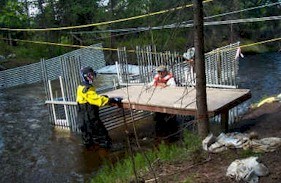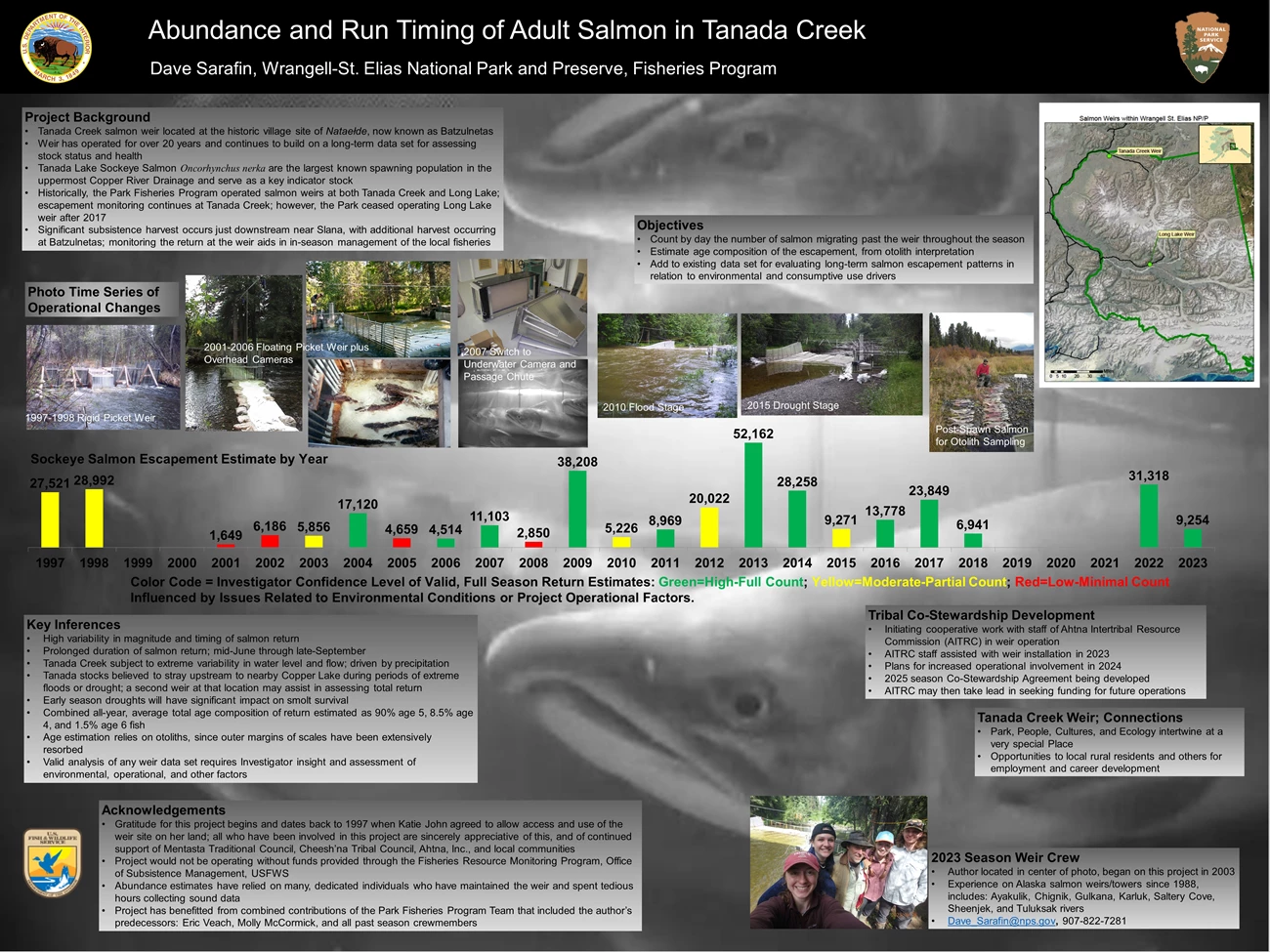
Wrangell-St. Elias National Park and Preserve operates a fish weir on Tanada Creek to monitor adult salmon migration. Tanada Creek is a third-order perennial stream and a tributary to the Upper Copper River in southcentral interior Alaska. Tanada Creek sockeye salmon are one of the uppermost runs of sockeye in the Copper River and support subsistence salmon fisheries in both the Copper River and in the creek. The monitoring and evaluation of these runs is essential to ensure that Wrangell-St. Elias National Park and Preserve maintains natural and healthy populations as required by the Alaska National Interest Lands Conservation Act (ANILCA). Data collected at the weir are used for in-season management of the local subsistence fishery. This creek is also significant due to its association with the Batzulnetas subsistence fishery. Batzulnetas is the Ahtna name for the traditional fishing site on Tanada Creek that has been used by the Ahtna people for more than 1,000 years. Descendants of earlier inhabitants, who now live in two native villages in the area, still utilize its resources for cultural education purposes as well as subsistence fishing. The Batzulnetas fishery was the subject of lawsuits from 1985 to 2000 as Ahtna elders Katie John, Doris Charles, and others attempted to reestablish their traditional subsistence fishery. The “Katie John Decision” resulted in the expansion of Federal management of fisheries in waters under Federal jurisdiction throughout Alaska. The weir site is about 16 km southeast of the community of Slana and 250 meters downstream from the Batzulnetas fish camp. A weir is a fence like barrier set across a stream that blocks the passage of fish but allows water to pass. The weir panels are made of evenly spaced tubular pickets extending across the entire creek. A chute is placed at an opening in this barrier and forms a narrow passage through which the fish can migrate upstream. There is an underwater video recording system that observers use to identify and count the passing fish. Water temperature and depth are also recorded daily. The floating design of the weir performs well in the dynamic flows of the Tanada Creek system. It requires minimal maintenance once installed, and during flood events debris can pass over the flexible weir. 
NPS/Dave Sarafin |
Last updated: March 11, 2025
